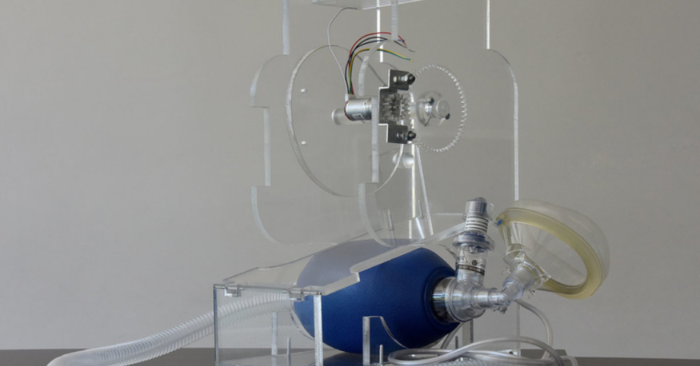Costa Rica is Manufacturing Artificial Respirators for Covid-19 Patients
Costa Rica is quickly becoming not only a reference in the Covid-19 pandemic crisis but also a role model when it comes to fighting a pandemic.
Besides finding effective treatment against Covid-19 and developing their own Covid-19 screening tests, Costa Rica is now developing the prototype of a low-cost and efficient artificial respirator.
Experts from the state University of Costa Rica (UCR) announced that two recently developed respirators passed the first clinical test and that their production will begin soon.

The university authorities reported that they submitted the two prototypes –one ambulatory type ambú and the other fixed for in-hospital use –for testing in a simulator of functions of the human body with state-of-the-art technology at the School of Nursing.
Artificial respiratory prototypes tests were successful
Both prototypes were tested on April 1st with robotic models and other high-tech resources, at the Health Simulation Center of the School of Nursing at the University of Costa Rica (UCR).
The results were successful, the purpose was to verify that these devices were safe, practical and that they complied with their human ventilatory capacity.
The clinical simulation test was performed in the presence of teachers from the Nursing School and a respiratory therapist, to guarantee the fidelity of the procedure.
The objective was to prove that all respiratory parameters were achieved with these devices, in accordance with established international standards.
The results obtained in the experiment were very satisfactory, since it was proven that “the devices meet the minimum requirements of an assisted ventilator,” said Dr. Ralph García Vindas, director of the School of Physics and one of the promoters of the initiative.
Costa Rica’s artificial respirators are cheaper than commercial respirators
The experts also explained that one of the devices is electric and the other is pneumatic (it works with a compressed gas engine). The advantage they present is that both can be used non-invasively in patients and promise to be cheaper in relation to commercial respirators, which are estimated to cost $10 million dollars and have risen in the context of the epidemic of Covid-19.
So far, a large number of companies and individuals have shown interest in the production of respirators.
“We are now close to manufacturing respirators. The idea is that both devices are completely safe and that we can incorporate as many improvements as possible, “said the director of the School of Physics.
Physicians, engineers and plastic artists are involved in the process
The team of the “Respira UCR” project involves researchers from the areas of physics, mechanical engineering and plastic arts of the university center.
Testing the artificial respirators in human beings is the next step
Investigators hope to soon have the permission of the state-run Costa Rican Social Security Fund (CCSS) and the Covid-19 Commission to continue the process, which will involve tests with human beings.
This is the first test of a set of tests that will be carried out with high-fidelity anatomical models that reproduce the characteristics of a human being.
These robotic models allow them to ensure and guarantee that the results they are obtaining will have a 95% similarity with those that can be obtained with human beings.
They have already managed to ventilate the tidal volume of respiration, which is defined as the amount of air entering and leaving the lungs in normal breathing. Its average value is 500 ml.
